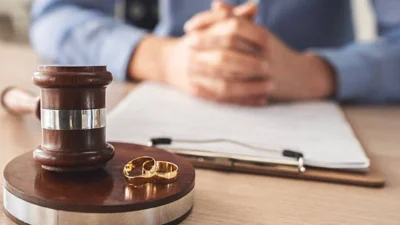Facing drug possession charges can be overwhelming, and the uncertainty of whether it’s a misdemeanor or a felony only makes it worse. The stakes are high-your freedom, criminal record, and future opportunities are all at risk. Understanding the differences early empowers you to make informed decisions and safeguard your rights.
This article provides a clear breakdown of what constitutes a misdemeanor in drug possession, the penalties you may encounter, and the legal defenses available to you. By understanding these details, you can alleviate stress and map out a clearer path forward. Keep reading to get the full picture and learn how to handle your case wisely.
What Is a Misdemeanor in Drug Possession?
A misdemeanor is a criminal offense that is more serious than a minor violation but less severe than a felony. In drug possession cases, this usually means having illegal drugs for personal use without intent to sell or distribute. These charges are designed to punish unlawful behavior while recognizing that it is less dangerous than large-scale drug crimes.
The type of drug and the amount in possession determine whether the charge is a misdemeanor. Some states treat small amounts of marijuana as a misdemeanor, while others may decriminalize it entirely or impose no penalties. Different jurisdictions have their own rules, so the same act could result in different charges depending on location.
Even though misdemeanors are less severe than felonies, they carry real consequences. Convictions can lead to jail time, fines, probation, or required drug prevention and treatment programs. They also affect future opportunities, including jobs, housing, and education, making it important to handle these charges carefully.
Factors That Determine a Misdemeanor Charge
Several key factors influence whether drug possession is classified as a misdemeanor. Understanding these factors is crucial because they can affect your case’s outcome. Knowing how they apply helps you prepare and respond effectively.
1. Type and Quantity of the Drug
The kind of drug and how much you have are major factors in your charge. Small amounts of marijuana may be considered a misdemeanor in many states. Stronger drugs like cocaine, heroin, or meth can lead to felony charges, even in small amounts.
2. Intent to Distribute
If authorities suspect that the drugs were intended for sale, the charge may escalate to a felony. Evidence of intent may include large quantities, packaging, scales, or lots of cash. Even if your intention was solely personal use, possessing these items can complicate your case significantly.
3. Criminal History
Your record can influence how your case is treated. Repeat offenders often face stricter penalties, even for a misdemeanor. First-time offenders may receive lighter consequences, such as probation or drug programs.
4. Location of the Offense
The place where you are caught matters for your charge. Possession near schools, parks, or protected areas can lead to harsher penalties. Some zones are designated drug-free, making even a misdemeanor more serious.
Legal Defenses Against Misdemeanor Drug Possession
There are several ways to fight misdemeanor drug possession charges. Unlawful search and seizure can work if the police broke the law during a search, which may get evidence thrown out. Other defenses include lack of knowledge, meaning you didn’t know the drugs were there, and no possession, showing you didn’t control the drugs.
Another defense is prescription-if the drugs were legally prescribed, you may not be guilty. Which defense works depends on your case and how the drugs were found. Good evidence and records can make your case stronger.
Hiring a good attorney is very important. A lawyer can thoroughly review your case, identify the most effective defense strategy, and guide you through the complex state laws. The right legal help can improve your chances of lowering or dismissing the charges.
Getting Simple Possession Charges Dropped
Some states allow certain misdemeanor drug possession charges to be reduced or dismissed. For example, if it’s a first offense or involves only a small amount for personal use, a lawyer can often negotiate to have the charge lowered. This can help avoid harsh penalties like jail time or large fines.
Info about getting simple possession charges dropped in South Carolina can include showing the court a clean criminal record, completing a drug education program, or proving the search and arrest were illegal. Each of these steps can help convince the court to reduce or dismiss the charge. Proper preparation and clear evidence are crucial for success.
Having strong legal representation is essential in these cases. A skilled attorney can guide you through the process, gather necessary evidence, and argue effectively on your behalf. With the right support, your chances of a favorable outcome improve significantly.
Expungement and Record Sealing
In certain circumstances, a misdemeanor drug possession conviction may be expunged from your public record. This process, known as expungement or record sealing, can mitigate the long-term consequences of a conviction. Clearing your record gives you a fresh start.
Expungement can make it easier to get a job, rent a home, or go to school. Each state’s regulations regarding eligibility and waiting periods for expungement can vary. Adhering to the correct procedures is essential for ensuring your record is appropriately cleared.
A lawyer can expertly guide you through the expungement process. They can check if you qualify, help with paperwork, and represent you in court if needed. With legal help, you have a better chance of successfully clearing your record.
Take Control of Your Case Today
Misdemeanor drug possession charges can have profound, lasting effects on your life, even if they initially appear minor. Understanding your options, from legal defenses to expungement, is key to minimizing these consequences. Taking action early with professional legal guidance can make a real difference in the outcome of your case.
Working with an experienced attorney ensures your rights are protected and the best strategies are used for your situation. They can assist in reducing charges, effectively navigate the court procedures, and explore options such as record clearing when eligible. With the right support, you can face the situation with confidence and take steps toward a fresh start.
Check out our other blog posts for more informative content!

Lexy Summer is a talented writer with a deep passion for the art of language and storytelling. With a background in editing and content creation, Lexy has honed her skills in crafting clear, engaging, and grammatically flawless writing.



